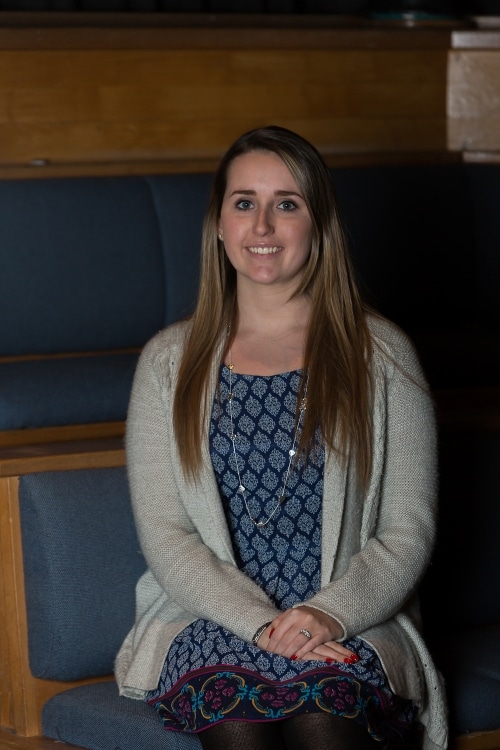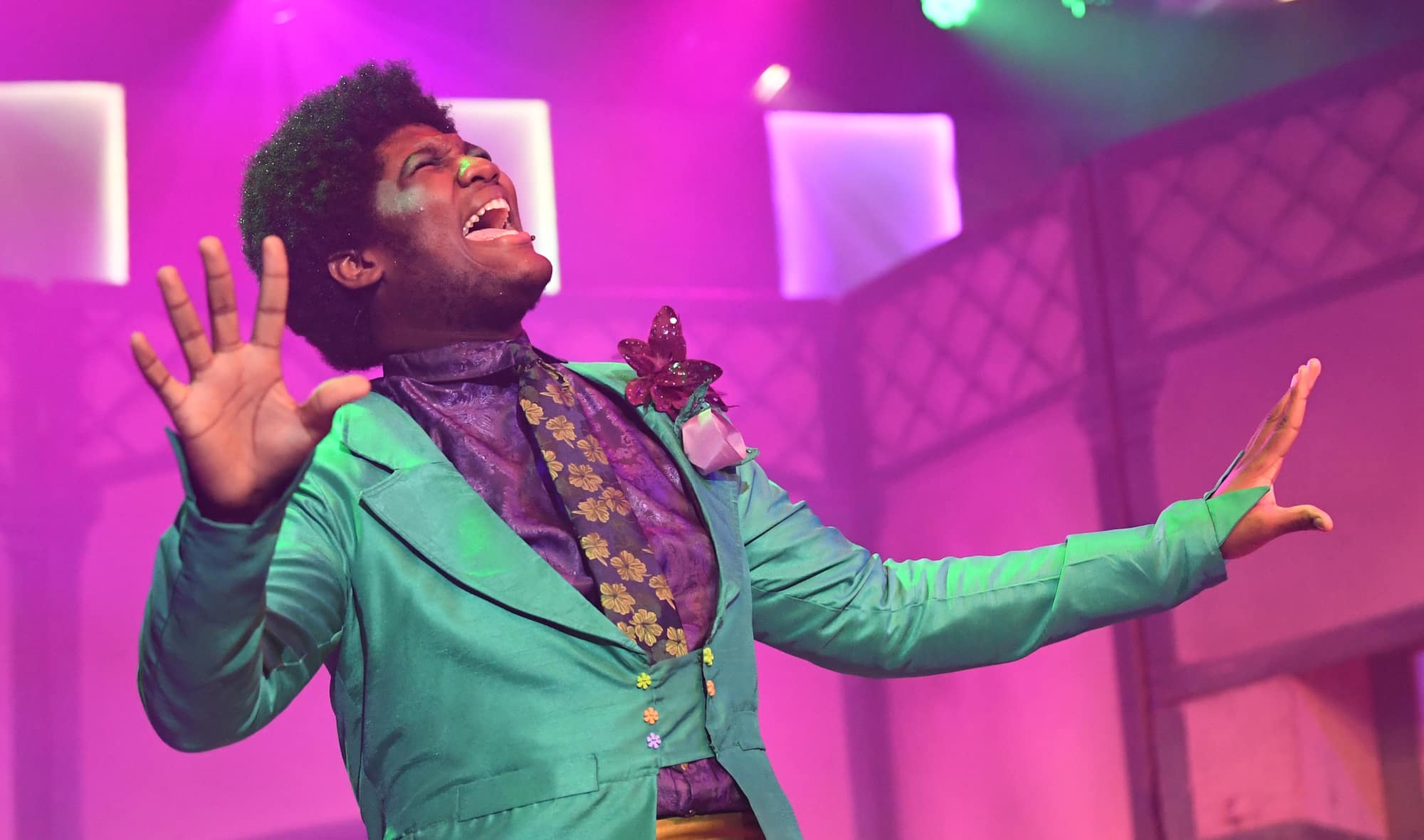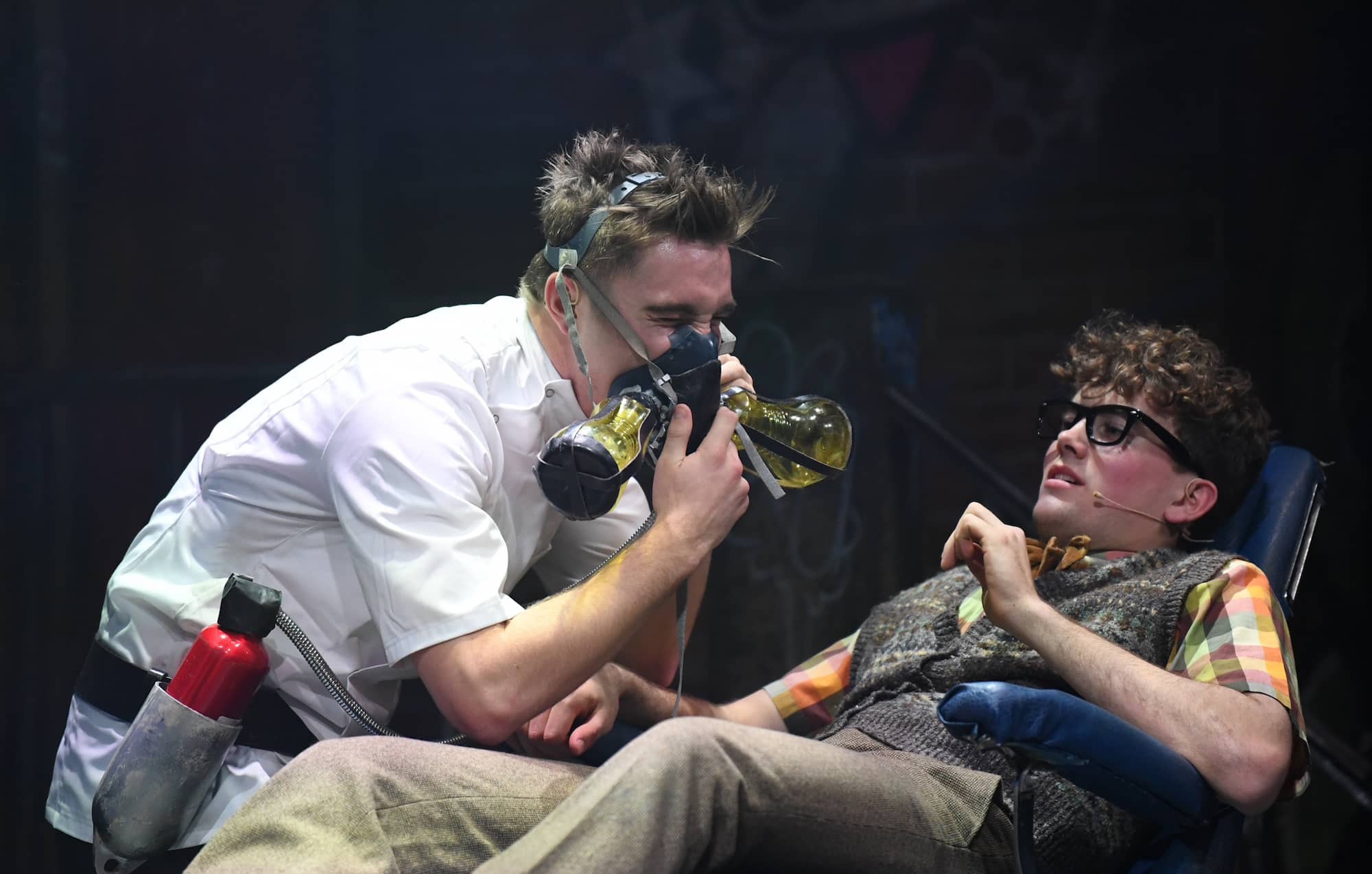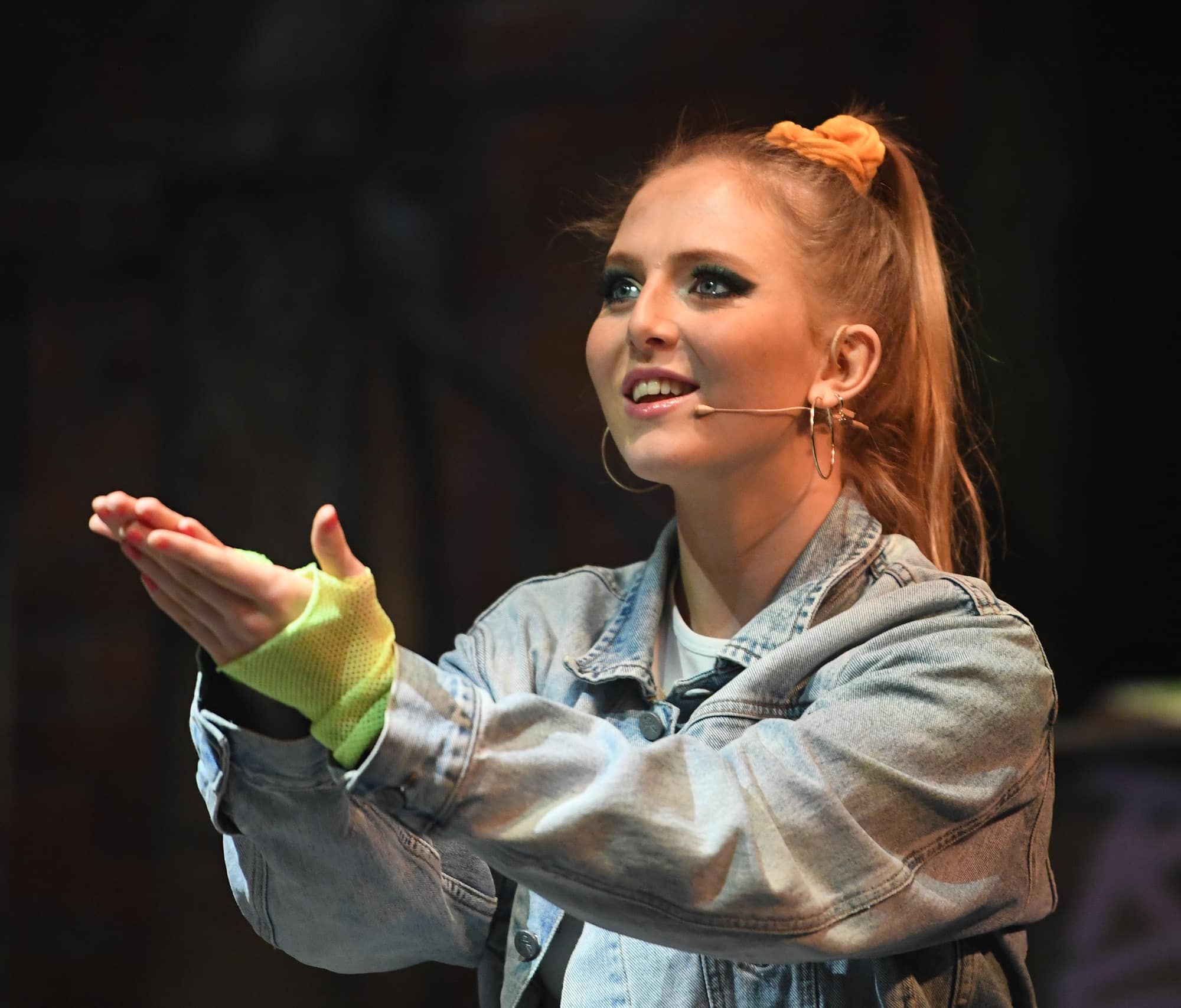Drama is such an important part of school life and many parents, pupils and staff are struck by how seriously the school approaches performance in all its forms.
Many pupils have cited the standard of Drama at Cranleigh as one of the reasons that they chose the school. Academic Drama affords pupils an opportunity to study in a different way, and students certainly value having a number of lessons per week that aren’t solely spent behind a desk!
It is not just the keenest actors who choose to study drama at GCSE and A-Level. In fact those who struggle with performing or confidence when in front of others can get a huge amount out of choosing the subject, and those with an interest in the design and technical sides of theatre have the opportunity throughout to explore and be examined in these areas. There are many life skills gained as part of the course, mostly in face-to-face communication and teamwork, alongside creative problem solving, project management and planning, and higher order analytical skills. All invaluable skills for life in the workplace and beyond.
Please enjoy reading about Academic Drama at Cranleigh, and take a look at the Co-Curricular Drama page to find out about recent productions (where you will find reviews and photo galleries). Please do not hesitate to get in touch if you require any further information.
In Year 9 pupils are introduced to performing and to theatre in various forms. The emphasis is on fun, mutual support and team work, and on learning what it takes to produce an effective piece of theatre. We begin the year with the study of physical theatre exploring the work of world renowned theatre company, Frantic Assembly. As the year progresses our Year 9 pupils embark on a performance project which involves them creating a mini theatre company where they each take on a different role, whether that be actor, costume designer or lighting designer. We also introduce students to how to write about performance through physically and theoretically exploring the hit musical ‘Hamilton’. In the final term we study a play which culminates in the end of year progress test which takes the form of a performance using an extract from the play and a written paper where they explore the text as a director, designer and actor.
The Drama GCSE course is split into three components incorporating both practical and written skills. We follow the Eduqas specification which allows pupils to work practically as an actor or designer with a 60% practical 40% written split, spreading the three aspects of the course across the two years.
For the performance element pupils work in small groups or pairs to produce a Devised piece of Theatre based around a stimulus accompanied by a creative portfolio, followed by a naturalistic style performance incorporating two extracts from a play. The written paper is studied throughout the two years and students explore a set text from the point of view of a performer, director, and designer as well as attending and reviewing a piece of live theatre.
Component 1: Devising Theatre (40% of GCSE internally assessed externally moderated)
This component requires pupils to devise a performance based on a given stimulus in a non-naturalistic style. Alongside the performance element pupils create a portfolio of supporting evidence which demonstrates the research, creation and development of ideas. This usually takes the form of a video log with accompanying rehearsal video footage or pictures.
Component 2: Performing from a Text (20% of GCSE externally assessed by a visiting examiner)
Pupils work on a performance from a published play text in a naturalistic. They must perform two extracts from their chosen text in groups of between 2 and 4 actors.
Component 3: Interpreting Theatre (40% of GCSE Written examination)
For Section A of the exam, pupils study a set text and answer a series of questions as a designer, actor and director. The play is analysed through both practical exploration and written preparation. For Section B pupils are required to analyse and evaluate one piece of live theatre viewed during the course.
At A-Level we continue to use the Eduqas specification which is designed to promote a balance between practical theatre making and the theoretical understanding of drama and theatre. This stimulating and engaging course encourages learners to make connections between dramatic theory and their own practice. The Drama and Theatre course is split into 3 components which equate to 60% practical with supporting evidence, and 40% in the final written exam. Again, as with the GCSE course it is possible for students to choose to be assessed on a technical/design skill, rather than acting.
Component 1: Theatre Workshop (20% of A-Level internally assessed in year 1, externally moderated)
Students are required to create a piece of theatre based on an extract from a text using the techniques and working methods of either an influential theatre practitioner or a recognised theatre company. They are given the freedom to devise and reinterpret the text. Alongside this they produce a creative process log which details the research and development of the piece and can take the format of prose, sketchbook, PowerPoint, video log etc.
Component 2: Text in Action (40% of A-Level externally assessed in year 2 by visiting examiner)
Students produce a scripted text performance and a devised performance for examination on the same day. As well as this a process and evaluation report is written in support of the acting process.
Component 3: Text in Performance (40% written exam at the end of year 2)
During the 2 year course students will have studied their two set texts, one pre 1956 and one post 1956 in preparation for the written exam. As well as this they will also study an extract chosen by the exam board from The Book of Dust, a theatrical adaptation of the Philip Pullman novel. They have 2 hours 30 minutes in the exam to answer three 40 mark questions which will require them to think as a director, actor and designer.
Trips & Events
Throughout the students’ time studying Drama at Cranleigh there will be many opportunities to see live theatre as part of their course. Some recent productions have included the smash hit musical, ‘Hadestown’, Punchdrunk’s immersive production, ‘The Burnt City’, ‘Oedipus’ starring Rami Malek and ‘Our Country’s Good’ at The Lyric. We also have the students take part in a number of performance workshops led by professional theatre companies which in the past have included The Paper Birds Theatre Company, Les Enfant Terribles, Shared Experience and Commedia dell’arte by The National Theatre.
Beyond School
In recent years students who have studied A-Level Drama have gone on to some of the countries most prestigious Drama Schools as well as to study Drama and related subjects at Russell Group and Red Brick Universities. However they are not limited in this area and many pursue degrees in a diverse range of subjects including Medicine at Bristol, History at Oxford, Economics at Brown (USA), Liberal Arts UCLA (USA), English at Edinburgh, Architecture at Cardiff, Fashion at St. Martins. As part of a balanced set of subjects Drama helps to facilitate applications to breadth of subjects demonstrating many of the key 21st century skills desired in all industries.
Students are well supported if they choose to pursue a career in the industry through auditions for drama schools and beyond. Our graduates have gone on to train at institutions including Bristol Old Vic, The American Academy of Dramatic Arts NYC, Arts Ed, LSMT, Oxford School of Drama, Mountview and Central School of Speech and Drama, with many launching successful careers in theatre, film and production.
Theatre Productions
Production Arts is the umbrella term for all areas of theatre production other than performing and directing. Students who choose to submit design work in place of performance will have the opportunity to use the extensive technical facilities of the department and to gain valuable hands-on experience working on a wide range of productions. BTEC Production Arts can be offered in the sixth form and is supported by the Theatre Manager to Subsidiary and 90-credit Diploma level.
More about Co-Curricular Drama
Emily McGhee
Director of Drama






















